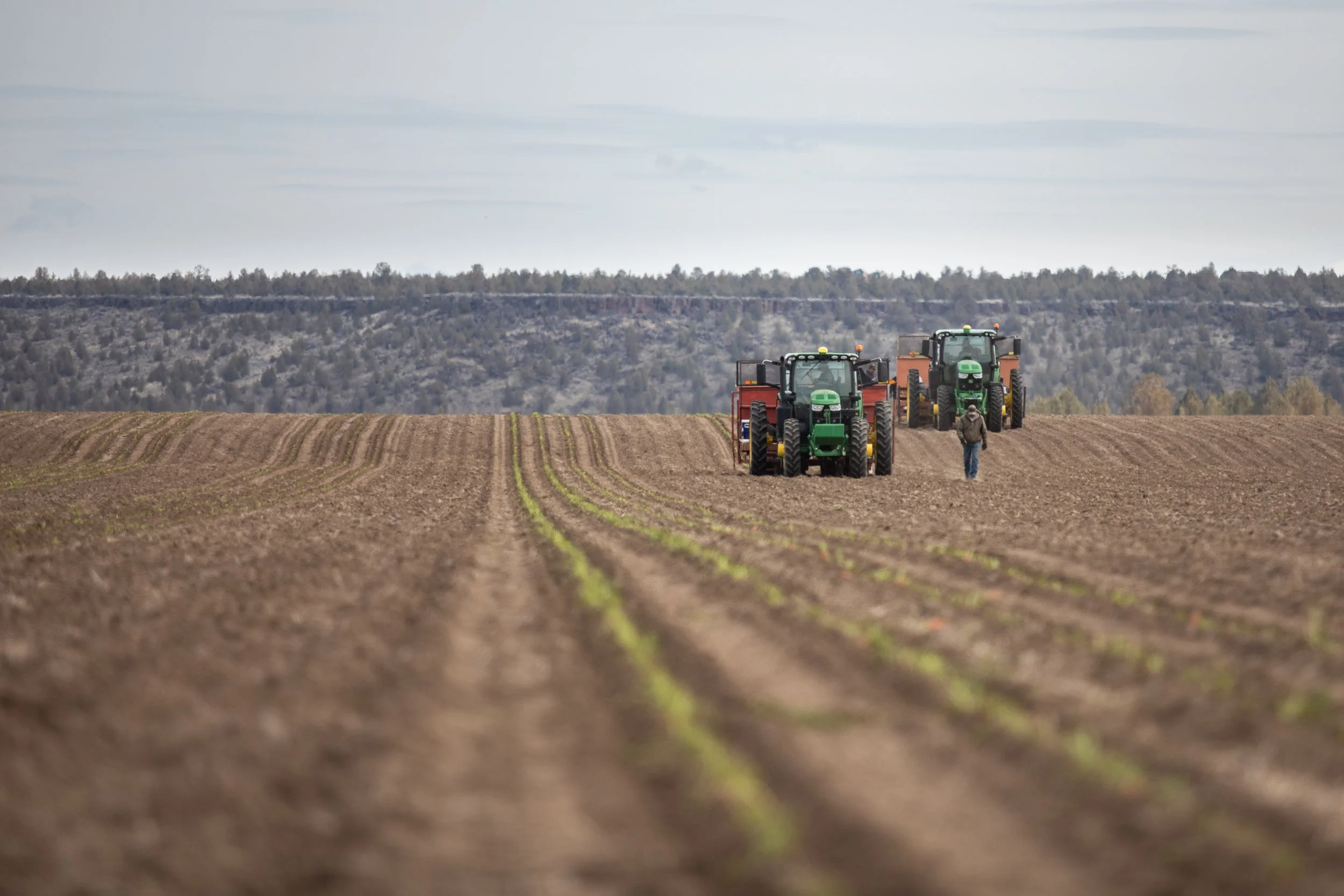Why Deschutes County Must Stop Spot Zoning
By Rory Isbell, Rural Lands Program Director & Staff Attorney
Originally published as a Guest Column in the Bend Bulletin on 08/27/2025.
View of Deschutes County from Smith Rock area.
Over the past 15 years, Deschutes County has rezoned nearly 3,000 acres of farmland for luxury housing and industrial projects — more than any other Oregon county. In just the last three years, more than 1,100 acres have been rezoned — with another 1,200 acres under review.
This is not how Oregon’s land use system is supposed to work. In fact, the harmful practice of spot zoning is against the law.
On July 29, Central Oregon LandWatch and 1000 Friends of Oregon formally requested that Deschutes County cease its practice of spot zoning agricultural lands for rural sprawl. The county has 60 days to respond.
Spot zoning is when the county rezones individual farmland parcels to serve a developer’s private interests. These changes often ignore broader community needs, impacts to surrounding agricultural operations, and long-term comprehensive planning. When farmland is rezoned, land values spike due to speculation, pricing out new farmers and robbing established operations of the chance to grow.
Spot zoning also forces taxpayers to subsidize sprawl. Extending police and fire protection, road maintenance, and utility lines to subdivisions miles from town is more expensive than serving communities in existing urban growth boundaries. In a region strained by wildfire danger and limited groundwater, adding sprawling rural subdivisions increases the risks.
LandWatch has a history of successfully opposing spot zoning applications, but Deschutes County’s pattern of approving farmland conversions for private gain is deeply entrenched. Central Oregonians have had enough, and it’s time to course-correct.
If the county fails to curtail its rampant approval of spot zonings, we plan to request Oregon’s Land Conservation and Development Commission (LCDC) take enforcement action against it for violating statewide land use goals which require counties to preserve agricultural lands and direct growth into cities rather than across rural lands.
Deschutes County has been subject to enforcement proceedings for violating land use laws before. In 1992, LCDC issued an enforcement order against the county for the same issue LandWatch and 1000 Friends are challenging today — noncompliance with laws that preserve farmland for farm use.
Critics of sustainable land use planning argue the system is too cumbersome and suggest rezoning farmland will solve housing shortages — but this confuses the issue. Oregon’s land use system is a framework for creating housing responsibly. Our cities and towns have urban growth boundaries specifically so we can plan for housing in locations where infrastructure and services already exist. Paving over farmland for luxury homes does not create the affordable housing we need. And, with more than 2,900 vacant rural residential lots already, Deschutes County doesn’t need more sprawl.
Oregon’s land use system is a covenant between past, present, and future residents. Farmers and ranchers deserve affordable access to the land they need to grow food for our communities. Central Oregonians deserve to know their tax dollars aren’t subsidizing luxury rural sprawl. And all of us deserve to know that the landscapes that make this place special will remain for generations to come.
Either voluntarily or by enforcement, we call on Deschutes County to honor that covenant by ending its practice of spot zoning.




